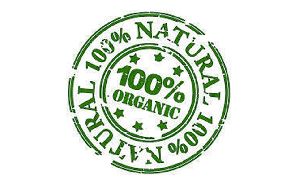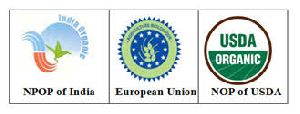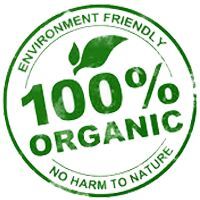
Organic Certification for Meet
25,000 - 35,000 Per Certificate
Type of Certification New Certification Type Of Industry Food Type Of Service Provider Consulting Firm Organic certification is a certification process for producers of organic food and other organic agricultural products. In general, any business directly involved in food production can be certified, including seed suppliers, farmers, food processors, retailers and restaurants. A lesser known counterpart is certification for organic textiles (or Organic clothing) that includes certification of textile products made from organically grown fibres. Requirements vary from country to country (List of countries with organic agriculture regulation), and generally involve a set of production standards for growing, storage, processing, packaging and shipping that include: avoidance of synthetic chemical inputs (e.g. fertilizer, pesticides, antibiotics, food additives), irradiation, and the use of sewage sludge;[1]

Organic Certification Compliance Services
Get Price Quote
Contact us now if you seek to attain Organic Certification. We are a Mumbai (Maharashtra, India) based company that is engaged in offering organic certification compliance services. It is a certification process required for dealing in organic food and other organic agricultural products. This certification can be attained by any business or individual directly involved in dealing of organic food such as seed suppliers, farmers, food processors, retailers, restaurant, etc.
Looking for Organic Certification Service Providers

Organic Certification
Get Price Quote
Our fast and efficient organic certification programme allows you to respond to the public’s growing awareness of sustainability issues and the push to protect natural resources and biodiversity. It also provides you with an effective entry-to-market tool for the world’s key organic markets. In addition, our independent organic certification service addresses concerns about: genetically modified organisms (gmos) harmful chemicals, such as pesticides and synthetic fertilizers hormones, antibiotics and veterinary drugs in animal feed wherever you are within the food supply chain, your organisation can take advantage of our globally-available services and participate in this continuously growing market. Our highly qualified experts provide an organic certification service according to the standards relevant for the most important organic import markets: the european union – organic regulations ec 834/2007 and ec 889/2008 the united states of america – the national organic programme (nop) also, the government of india - national programme for organic production (npop) if you want to comply with other certification schemes or organic standards, we can combine them all into a single, cost effective audit. Sgs certification farmers, processors, traders and every other operation in the organic production chain must be inspected and certified each year. This ensures compliance or equivalency with the organic production requirements of the intended market. Therefore, if you are an operator wanting to farm organically (or manufacture organic products) and gain sgs certification, we will annually inspect all of the premises and production methods involved in your organic production. the organic products that we certify may use the designated organic standard logo, as well as the sgs organic logo. This can help to distinguish your product in the market and adds brand value, since consumers are assured that the products they are purchasing are authentically organic.

organic certification services
Get Price Quote
Organic certification is a certification process for producers of organic food and other organic agricultural products. In general, any business directly involved in food production can be certified, including seed suppliers, farmers, food processors, retailers and restaurants. A lesser known counterpart is certification for organic textiles (or Organic clothing) that includes certification of textile products made from organically grown fibres. Certification is essentially aimed at regulating and facilitating the sale of organic products to consumers. Individual certification bodies have their own service marks, which can act as branding to consumers—a certifier may promote the high consumer recognition value of its logo as a marketing advantage to producers.